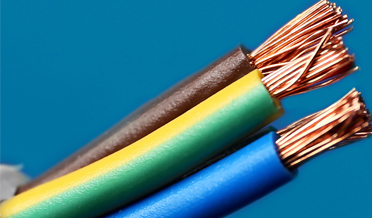Residential Electrician: 7 Ways to Lower Your Electricity Bill
Residential Electrician: 7 Tips to a Lower Electricity Bill
Electric utility costs have increased 67% over the last twenty years and are expected to increase 3% per year in the future. While gains in technology have resulted in more efficient homes, HVAC systems and appliances, the bill still creeps higher. There are some steps you can explore so you don’t avoid the mailbox when you anticipate the electric bill.
First, understand what you are paying for. Heating and air conditioning costs account for 51% of the annual energy cost nationwide, heating hot water costs another 19%, and other uses account for the 30% remaining. Let’s consider what you can do to lower costs.
- Upgrade your thermostat. Controls for HVAC systems have advanced over the years from a mechanical dial to advanced electronic control and they come in two types.
- Programmable thermostats are a major upgrade and can significantly impact your energy bill. With this thermostat, you can program a change in the temperature setting during the day while the house is vacant or overnight. The EPA estimates a decrease of 2% in cost per degree change over an 8-hour period.
- Smart thermostats have all of the benefits of a programmable thermostat, with the added option of making changes from a smartphone app.
- If installing a programmable or smart thermostat, it is best to have a Residential Electrician complete the install. They can properly configure your home’s HVAC system to operate at its most efficient setting.
- Check your insulation. Increased insulation can reduce heating and cooling costs by as much as 15%, but this must be balanced with installation costs. The attic is the first and easiest place to check. Building code calls for at least 9 or 10 inches of insulation, depending on the material. Other insulation improvements are normally made during renovation or remodeling.
- Use ceiling fans efficiently. Ceiling fans can enhance the comfort level in your home and improve the efficiency of the HVAC system. Set the fan rotation to run counterclockwise in the winter and clockwise in the summer. However, there is no benefit to keeping fans and lights on in unoccupied rooms.
- Change light bulbs to LEDs. Bulb technology has improved over the years. Incandescent bulbs produce significant light, but produce significant heat, wasting energy. Compact fluorescent bulbs (CPL) and light-emitting diode (LED) technology produce more light without heat, saving 75% of the energy needed for lighting. Change your light bulbs throughout your home as the old bulbs burn out. The new bulbs also have a lifetime 25 times longer than your old bulbs.
- Run appliances at full capacity. Using appliances, such as washing machines and dishwashers at half capacity wastes both water and energy. Wait until you have full loads before using.
- Use Energy Star Appliances. Energy savings with new appliances are not sufficient reasons to purchase new appliances. However, purchasing Energy Star when you buy appliances can save 10% to 50% on energy costs. Remember to recycle your old appliances.
- Avoid phantom energy draws. Many electrical components use energy, even when not activated, such as phone and computer chargers, gaming consoles, and DVRs. Some devices should be unplugged when not being used; consider using a power cord that will disconnect several devices at once. Use the energy-saving mode when possible.
Have Questions For a Residential Electrician
Our four decades of experience as a seasoned commercial and residential electrician contractor AirPro Houston provides you with the Residential Electrician skill and expertise to replace circuit breakers and inspect your electric circuits.
We have financing options available with great options with up to 72-month terms with approved credit. Call us today at 281-880-8805 and let us partner with you for all of your electrical repair and installation needs.

